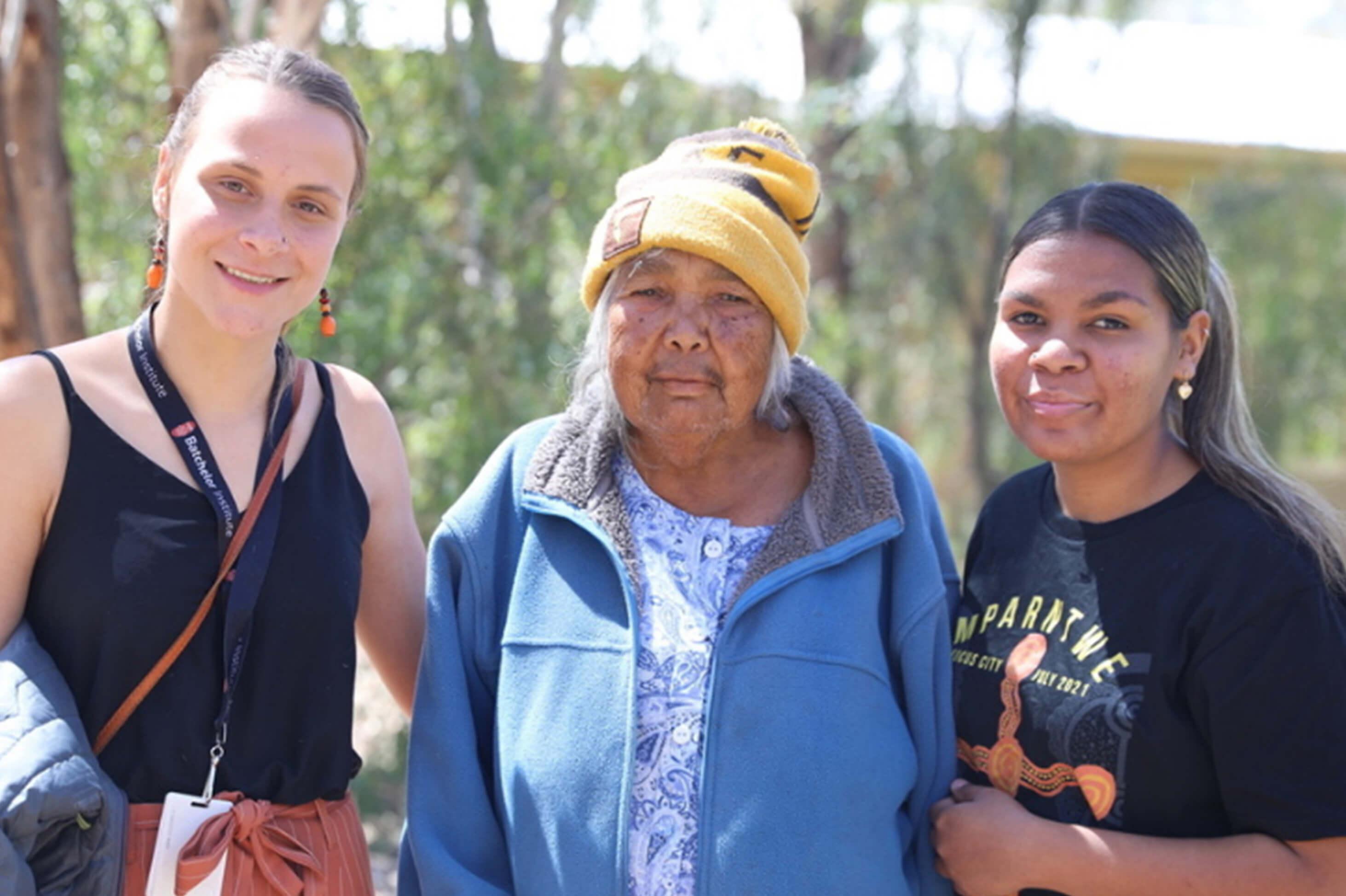

Batchelor Institute language revivalist Vanessa Farrelly is one of 27 outstanding individuals sharing in $1 million of grants from the AMP Foundation’s Tomorrow Fund this year.
She will use her $55,000 grant to continue her work to help continue a project that aims to create fluent Pertame speakers by bringing together Elders who speak the language and adult learners for intensive oral language immersion sessions.
Since 2014, this AMP Foundation grants program has provided $8 million in grants to 334 Australians who are working hard across a wide range of fields to make a positive difference in their communities. The grants aim to help individuals like Vanessa to take their projects to the next level.
For many years, Vanessa’s family has been working to revive Pertame (Southern Arrernte) – the language that belongs to the country south of Alice Springs. The lifeline came in 2017 when she visited New York with her Nanna Kathleen, who is one of the few people still fluent in Pertame. As guests of a UN Forum on Indigenous Issues, they learned about the innovative Master-Apprentice Program model – developed by Native American communities in California.
Vanessa is now leading a Batchelor Institute Centre for Australian Languages and Linguistics (CALL) project that aims to create fluent Pertame speakers by bringing together Elders who speak the language and adult learners for intensive oral language immersion sessions.
This approach is developing young leaders, strengthening cultural identities and uniting families. For Vanessa, this project is not just about saving her own language, but also sharing the language revival methodology with Indigenous communities across Australia.
“My community instantly connected with the MAP methodology so aligned with Pertame worldviews of knowing and teaching, that valued Elder wisdom and intergenerational knowledge transmission above all else,” Vanessa says.
“This Tomorrow Fund grant can help us to ensure our apprentices reach fluency, to lead the growth of the next generation of fluent Pertame children and share our inspirational stories with our fellow language groups.”
